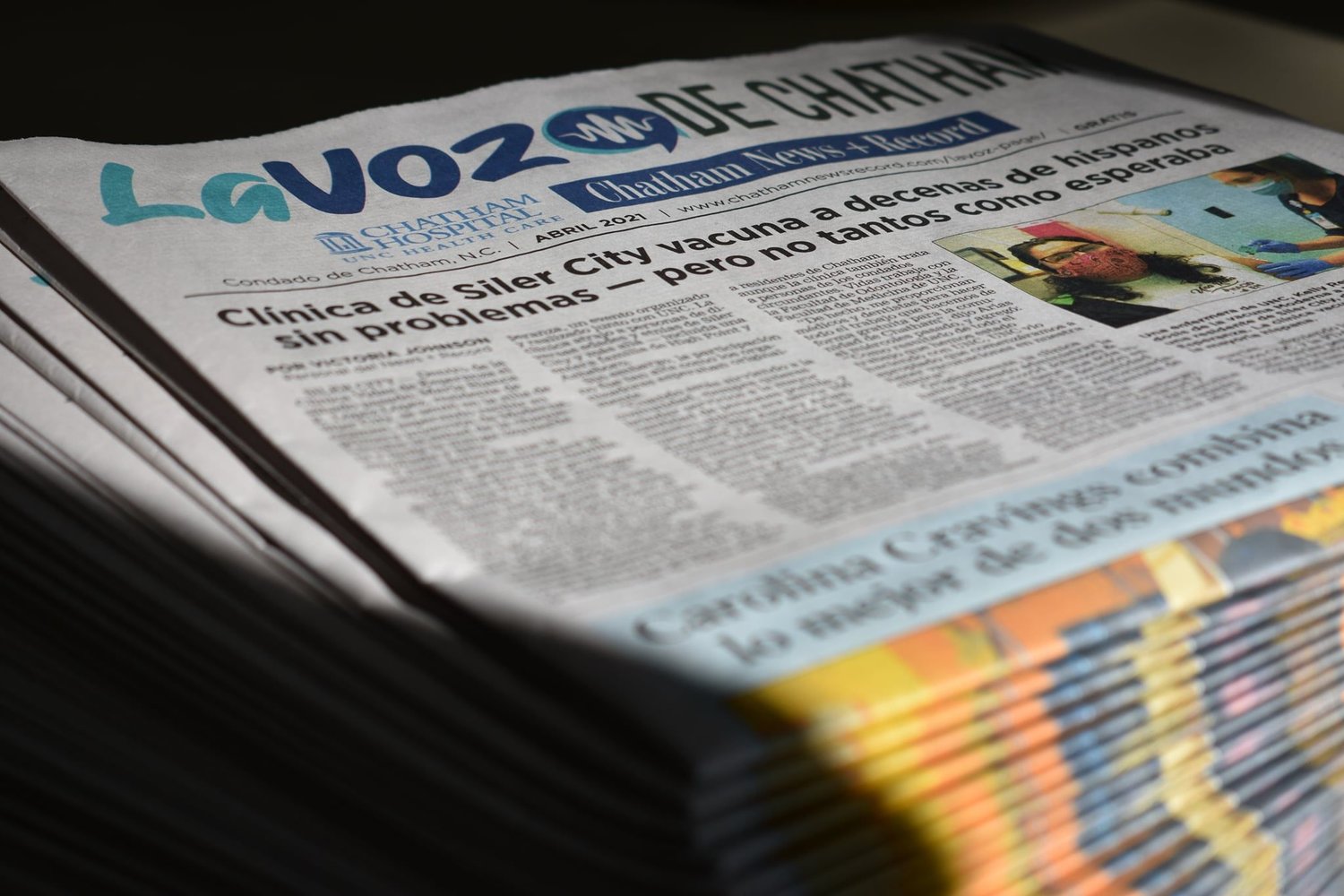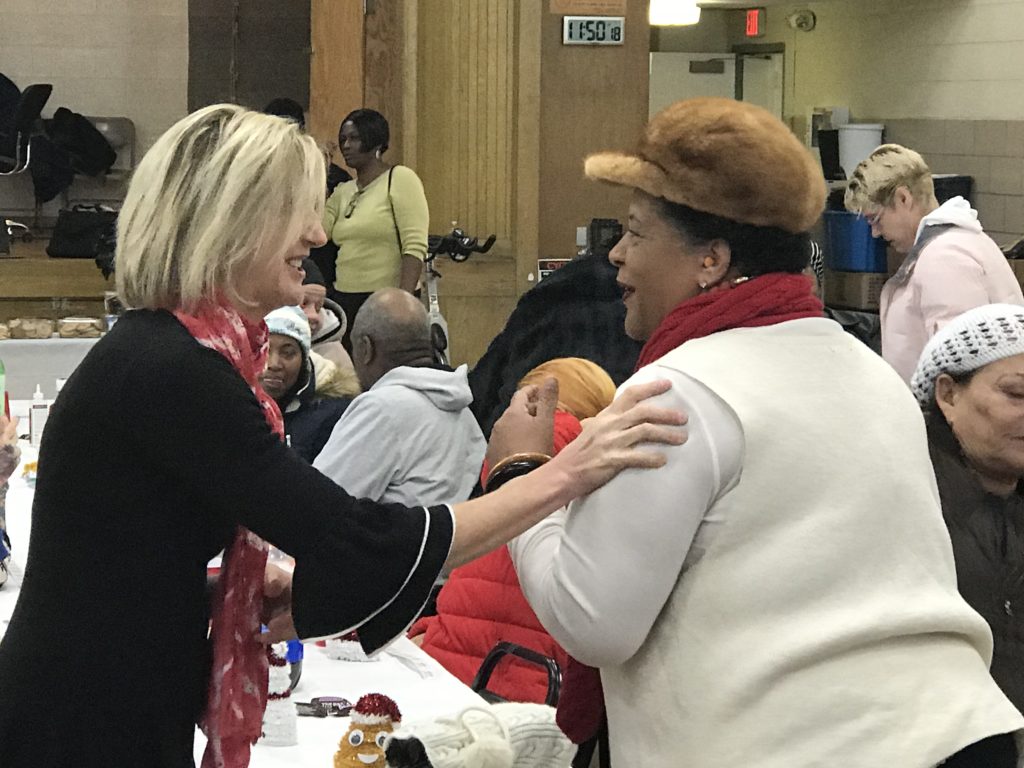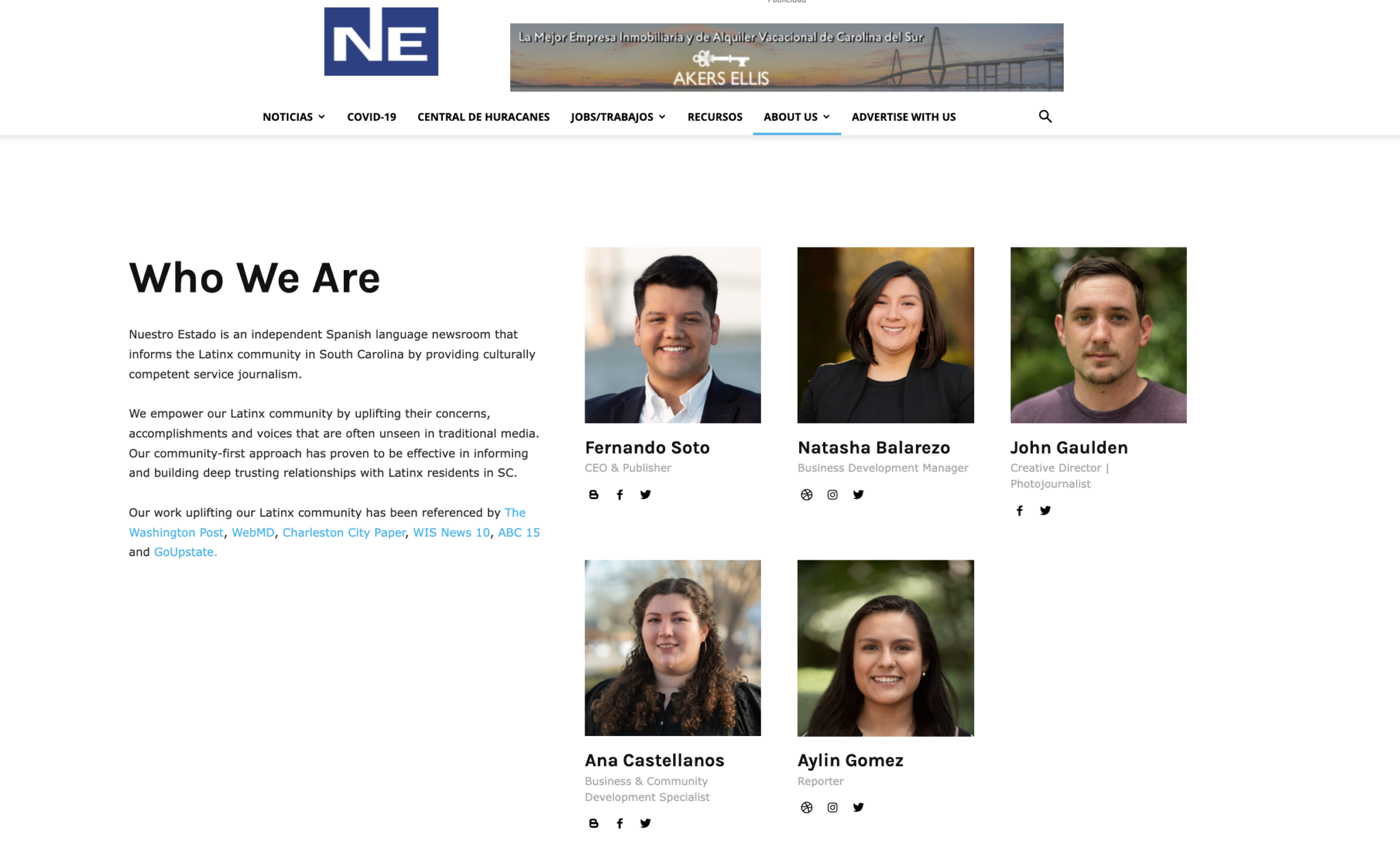How local news organizations are improving coverage for Latinx communities
Ashley Hopko, for API's Better News, As news organizations rethink their business models and diversity efforts, many are looping in more coverage for the Latinx community, which is often underserved by media outlets at a national and local level.
As news organizations rethink their business models and diversity efforts, many are looping in more coverage for the Latinx community, which is often underserved by media outlets at a national and local level. This is a series on Better News to a) showcase innovative/experimental ideas that emerge from the Knight-Lenfest Newsroom Initiative and b) share replicable tactics that benefit the news industry as a whole.
This “win” features highlights from pieces previously published on BetterNews.org by Bill Horner III and Victoria Johnson, formerly of the Chatham News + Record; Michael Kilian of the Rochester Democrat and Chronicle, Cynthia Benjamin of Gannett and Len LaCara, formerly of Gannett; Fernando Soto of Nuestro Estado, which merged with Pasa La Voz to become Pasa La Voz Noticias; and Rebecca Plevin, formerly of The Fresno Bee, and Melissa Montalvo of The Fresno Bee.
The Chatham News + Record participated in the UNC Table Stakes program in 2020-21. The Rochester Democrat and Chronicle participated in the Gannett-McClatchy Table Stakes program in 2019-20 and the UNC Table Stakes program in 2022-23. Nuestro Estado participated in the UNC Table Stakes program in 2020-21. The Fresno Bee participated along with fellow McClatchy newsrooms The Sacramento Bee, The Modesto Bee and Vida en el Valley in the Communities Sprint in 2022 for Table Stakes alumni.
You can hear more about the Democrat and Chronicle and Nuestro Estado’s work on the It’s All Journalism podcast:
Examining a coverage zone’s demographics
Chatham News + Record, a North Carolina publication with both an online and print edition, used 2020 census data to determine that at least 14% of the publication’s readers are Hispanic/Latinx. In response to the discovery that the coverage wasn’t representative of the area’s population, the team developed La Voz. This Spanish-language edition focused on the community’s hardships with COVID-19 and other important information.
“The problem wasn’t just that the Latinx community didn’t have a dedicated local news source, but that the community as a whole was mostly disconnected from a large segment of its population,” Bill Horner III and Victoria Johnson wrote in a previous case study published by Better News.
Horner, the former editor of the Chatham News + Record, warned that census numbers of marginalized communities may be significantly underreported, due to mistrust of how the census information is used. So there may be a larger Latinx community in any given area than what is officially reported.

D&C Senior Engagement Editor Julie Philipp, left, chats with a Rochester woman in December 2019. (Michael Killian/Democrat and Chronicle)
The Rochester Democrat and Chronicle went through a similar transformation to improve its coverage when Causewave, an organization focused on boosting outreach efforts of other nonprofits, found in a community poll that coverage of the Latinx community in Rochester was essentially “invisible…including newspapers and television — aside from sports, crime and courts stories.”
Earning trust and boosting engagement
In Chatham County, the News + Record’s staff found that establishing trust with Latinx community members was significantly harder than anticipated. Community members were hesitant to speak with reporters, but leaders from the Spanish-speaking community were vital in forming partnerships and getting sources.
Successful ideas to boost trust included hosting small focus groups along with sponsoring larger, panel-type events that brought in local leaders.
The Rochester Democrat and Chronicle faced a similar roadblock and developed its own set of solutions — including working internally on ways to write for POC and Latinx communities instead of just writing about them.
“We sponsored the 50th edition of the Puerto Rican Festival, whose director marveled at being invited to the newspaper offices,” Michael Kilian, Cynthia Benjamin and Len LaCara wrote in a Better News piece. “We partnered with the Ibero-American Action League, a half-century-old Latino organization, which quickly led to our news highlights being read on Spanish-language radio.”
Importance of Spanish-speaking reporters and Spanish language coverage
Hiring Spanish-speaking reporters and launching Spanish-language content also proved to be highly successful when it came to building trust and growing an audience, as shown by Nuestro Estado, which recently merged with Pasa La Voz to become Pasa La Voz Noticias. The outlet began as Recursos Estatales (State Resources) and was a way to help the Spanish-speaking, non-documented community stay in the know with breaking news and critical information.

A screenshot of Nuestro Estado’s ‘About Us’ page
“I began reporting on the pandemic and live-streaming press conferences from local and state officials with Spanish voice-over translation in real time, which I had done during hurricane season,” said Fernando Soto, editor-in-chief and founder of the site. “From there, the site’s audience grew significantly, but so did our needs.”
A few years back, The Fresno Bee, Modesto Bee and Sacramento Bee teamed up to create a newsletter for the Latinx community that has English and Spanish coverage. Called La Abeja, the weekly newsletter is written by five local Latinx journalists who meet regularly to explore creative ways to support content for the community — including cross-sectional coverage with the LBGTQ+ community and community groups.
“Our internal data show that La Abeja’s open rate is about 45% higher than the company average; the click rate is about 10% higher,” Rebecca Plevin and Melissa Montalvo said.
The Chatham News + Record used a grant from the Facebook Journalism Project COVID-19 Local News Relief Grant to hire two Spanish-speaking reporters to assist with the publication’s coverage.
KPBS, based in San Diego, also recently received funding to hire a Spanish-speaking reporter who will cover immigration, acclimation and voting resources.
Respect as a foundation
Respect for community members is key when launching a successful content shift that takes into consideration the Latinx population.
“Our audience keeps coming back because they know we have their best interest in mind,” Soto said. “We understand the sensitivity of undocumented folks, and they trust us to get answers and information without jeopardizing their safety.”